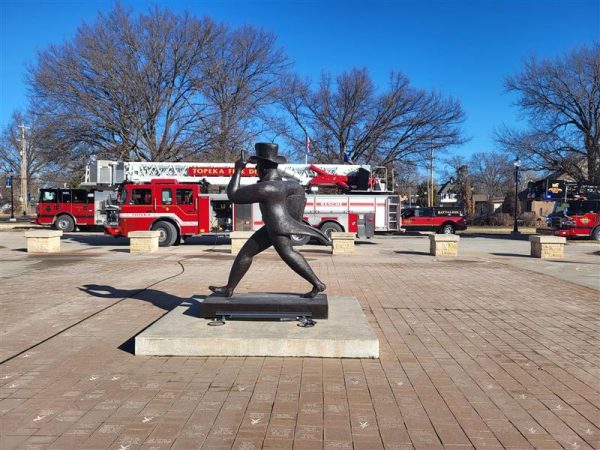Student services transitioning needs
The COVID-19 issue shines a light on many of society’s other problems. What do students need in this sudden home bound movement?
And what about Washburn students who still need services such as housing, counseling, or financial and literary access? What has changed?
Washburn’s outreach to students fans out across different departments as everyone transitions into new forms of services. These changes are analyzed in the Student One-Stop, Residential Living, Mabee Library and Counseling Services.
Student One-Stop: Very little has changed in processing financial aid, applications, transfers and enrollment. What has changed is the lag in students who are not employed anymore, according to Director of Student One-Stop, Blake Cauble-Johnson.
“I’m anticipating it is going to be a bigger issue for this summer and upcoming fall,” said Cauble-Johnson. “As people are unemployed or having other difficulties, I think we are going to see an increase in withdrawals. It’s just a very uncertain and scary time. We want to make sure students and their families are not making decisions based on that fear.”
Students who have an outstanding balance on their account of $1,000 or more typically have a hold on their account preventing them from enrolling in future semesters at Washburn.
“That ceiling has been bumped up to $2,500,” said Cauble-Johnson. “But overall, deadlines have been extended for payment plans. One thing the entire university has done is just extending every deadline we operate under. A lot of the rules have been eased to give students as much flexibility as they can have.”
Operating in a state of uncertainty at all times is a common theme across campus. For many students, they cannot go home. In turn, they depend upon on-campus resources such as residential living and dining services through the Corner Store, according to Director of Residential Living, Mindy Rendon.
“We’re down to that core group of students [approximately 60] who are continuing to stay on campus with us,” said Rendon. “Students that are continuing to stay essentially are finishing out their contract. The university was very quick to say that they are committed to providing some sort of refund to students [who do not live on campus anymore].”
Students still living on campus are being integrated to The Village; a slow-moving process that is spread out from other residents, and each person is equipped with one room and their own bathroom.
“This impacts everybody on campus,” said Rendon. “Every student has different needs and different situations.”
Not only do students need a sanitary place to live, internet access to comply with the online format of classes is also a factor. Many do not have access to a laptop or running Wi-Fi. Students’ success is now determined by what is available at home.
“We have, I think, about 65-75 laptops in Mabee Library for various purposes,” said Sean Bird, Associate Dean of Mabee Library. “We have had 170 laptops and we’re more than half way through those. The wireless part, having access to the internet, that is a little bit more of a challenge.”
LibChat@WU is available from 8 a.m. to 8 p.m. online for students and teachers to find information literacy resources, whether it be on a research paper or directing ZOOM meetings. For laptop check out, email sean.bird@washburn.edu by replying with the student’s name, WIN & a contact number.
“We’re working with the Washburn University Foundation,” said Bird. “They created a fund for students called Ichabods Moving Forward Fund that will allow students to receive grants, granting them access to a laptop or a subscription to a local internet provider.”
Students and faculty also have the Mabee Library LibGuide that directs temporary wireless resources. Unfortunately, to maintain social distancing, many resources in the community require students to limit contact from inside of their vehicle.
Another valuable resource is the Counseling Services to process the emotional impact that COVID-19 has had on every student and member of faculty or staff.
“Students are able to make appointments by emailing counseling@washburn.edu or they can call our office phone [785-670-3100],” said Molly Steffes-Herman, Campus Advocate. “From there, we are able to do counseling over the phone or we have the capability to do counseling through video chat.”
Transitioning into “Tele-therapy” also formed a new four-week long online chat room called Coping With COVID-19, according to Steffes-Herman, that allows faculty and students to understand that they all share one common emotion: uncertainty.
“When the going gets tough,” said Bird. “You can see what the world really looks like because everybody has their guard down.”
Edited by Hannah Alleyne, Adam White
Your donation will support the student journalists of Washburn University. Your contribution will allow us to purchase equipment and cover our annual website hosting costs.











